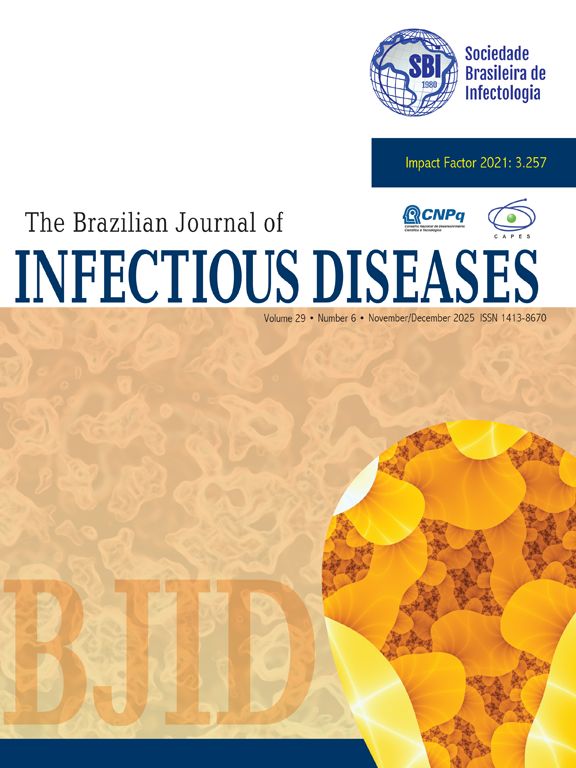Patients with chronic liver disease have a higher risk of fulminant hepatitis when infected with hepatitis A virus, and vaccination of these patients against such infection is recommended. In Brazil, mainly in the South and Southeast regions, the epidemiology of hepatitis A (HA) has shifted from high to intermediate endemicity, which would have implication on policy of HA vaccination for these populations.
ObjectiveTo verify the prevalence of HA immunity in adult patients with liver cirrhosis (LC), in Uberlândia MG, a city of Southeastern Brazil.
MethodsBetween December 2005 and December 2006, 106 patients with LC were consecutively evaluated. In addition, 75 individuals without LC or alcoholism were evaluated (control group - CG).
ResultsTotal anti-HAV (ELISA methods) was positive in 104 (98.1%) patients with LC (82 men, 24 women; mean age, 53.3±11.9 years) and in 74 (98.7%) individuals of the CG (55 men, 20 women; mean age, 47±11.6 years), p>0.05.
ConclusionsFor patients with chronic liver disease, in the geographic regions and age groups evaluated, routine vaccination against hepatitis A is not recommended. Moreover, the serum determination of total anti-HAV, used to assess immunity, is five times cheaper than vaccination against hepatitis A and, for this reason, should precede vaccination.




